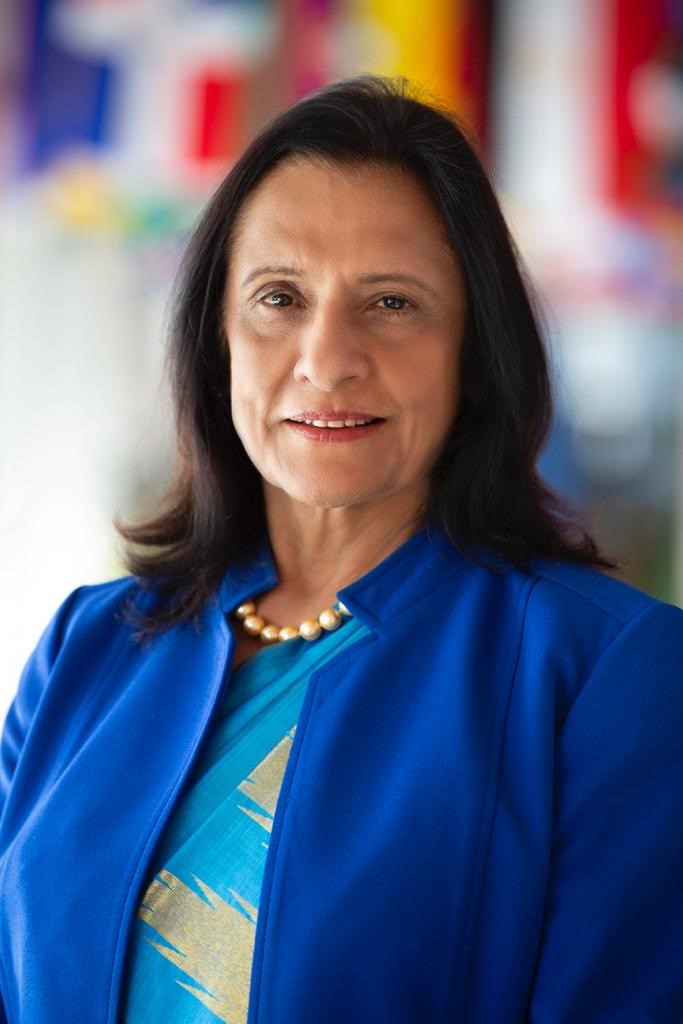UN International Day of Older Persons, 1 October 2021
Message from Dr Poonam Khetrapal Singh
Regional Director, WHO South-East Asia Region
 On UN International Day of Older Persons, WHO is calling on countries and partners in the South-East Asia Region and across the world to intensify action to foster healthy ageing and improve the lives of older people, their families and communities. The global population is ageing and in many countries the number of people aged 60 years and older will soon overtake the number of children. In 2017 the number of people in the Region aged 60 years and older was estimated to be 186 million against a global estimate of 962 million. By 2050 the number of older people globally is expected to rise to more than 2 billion, which will include around 20% of the Region's population. All older people must be empowered to fulfil their potential and live with dignity and equality in a healthy environment. WHO will continue to support Member States of the Region to achieve this outcome and accelerate progress on the UN Decade of Healthy Ageing priorities - creating age-friendly environments, combating ageism, and strengthening the provision of integrated and long-term care.
On UN International Day of Older Persons, WHO is calling on countries and partners in the South-East Asia Region and across the world to intensify action to foster healthy ageing and improve the lives of older people, their families and communities. The global population is ageing and in many countries the number of people aged 60 years and older will soon overtake the number of children. In 2017 the number of people in the Region aged 60 years and older was estimated to be 186 million against a global estimate of 962 million. By 2050 the number of older people globally is expected to rise to more than 2 billion, which will include around 20% of the Region's population. All older people must be empowered to fulfil their potential and live with dignity and equality in a healthy environment. WHO will continue to support Member States of the Region to achieve this outcome and accelerate progress on the UN Decade of Healthy Ageing priorities - creating age-friendly environments, combating ageism, and strengthening the provision of integrated and long-term care.
The Region has in recent years enhanced policies, systems and services to promote healthy ageing, in line with its Framework on Healthy Ageing 2018-2022. The Framework identifies seven strategic areas of action, each underpinned by the Region-wide quest to achieve universal health coverage (UHC), with a focus on strengthening primary level services. It takes a holistic approach to health and well-being for older people, going beyond organ and disease-centric approaches. Amid the COVID-19 response, several countries of the Region have already begun implementing the Integrated care for Older People (ICOPE) framework, which provides evidence-based, comprehensive guidance on how primary health care providers can screen, assess and manage a range of health problems. WHO will continue to support Member States of the Region to implement the ICOPE, with a focus on strengthening the capacity of health and care workers to provide integrated, compassionate and people-centred care.
Throughout the COVID-19 response, policy makers must continue to protect and enhance the health and well-being of older people, including by ensuring they have access to essential health services. "Digital equity for all ages" is the theme of this year's UN International Day of Older Persons, which is especially relevant to policy makers in health and health systems. Key innovations in telemedicine, m-health and e-health initiatives - many catalyzed or expanded by the pandemic - must be accessible to all older people. Where appropriate, such innovations should outlast the pandemic, accelerating Region-wide efforts to achieve UHC. Enhancing health equity - including equity for all at all ages - continues to be a key focus of the Region, reflected in the recently adopted ''Declaration on COVID-19 and measures to 'build back better' essential health services to achieve UHC and the healthrelated Sustainable Development Goals".
To attain full implementation of the Region's Framework on Healthy Ageing, several priorities require targeted attention. First, health workforce strengthening. All countries of the Region must be supported to identify health workforce gaps and strengths, and to increase health workforce education and training, including through the implementation of guidelines on core competencies and the development of context-specific training manuals. Second, generating and applying data and evidence. Managing demographic transition requires an in-depth understanding of people's needs, for which high-quality data are needed. All countries of the Region should make full use of the ICOPE implementation framework, which provides actionable guidance to assess and measure the capacity of services and systems to deliver integrated care at the community level. Third, laying the foundations for long-term, care systems in every country. Human emotions, family structure, and the strength of health and welfare systems, among other factors, determine how older people are cared for. Such challenges must be identified and overcome to ensure all older people can access the quality, long-term care needed to stay healthy and well.
We must achieve the future we want for present and future generations. Towards this goal, the Region's new Expert Panel on Healthy Ageing is working with key stakeholders across sectors, with the aim of ensuring all people achieve the highest attainable standard of health at all stages of life. On UN International Day of Older Persons, WHO reiterates its commitment to ensuring all older people can be and do what they value - because health and well-being for all at all ages is essential to leaving no one behind, and achieving a fairer, healthier Region and world for all.
